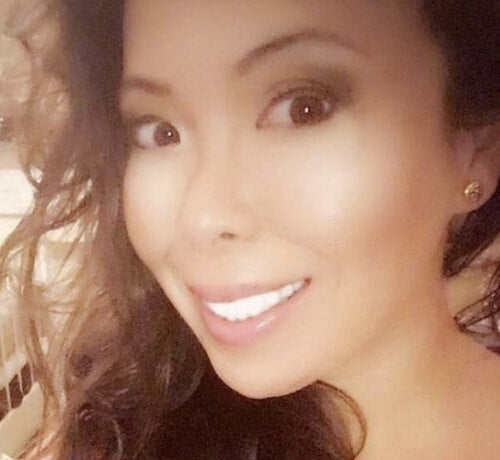There’s a difference between simply having a bad day versus that overwhelming state of a deeper mental health condition, such as depression. Clinical depression is a common, but serious, medical condition that negatively impacts how we feel, think and act — and it may potentially manifest in physical symptoms, such as stress-related hair loss.
Read on to learn whether depression affects your hair and what you can do to encourage fuller looking hair.
What Is Depression?
Depression causes feelings of sadness and/or a loss of interest in activities you once enjoyed, according to The American Psychiatric Association. It can lead to a variety of emotional and physical problems that may decrease the ability to function at work and at home.
Ranging from mild to severe, the psychological effects of depression symptoms can vary and may include:
- Immense feelings of sadness
- A loss of interest or joy in activities once enjoyed
- Appetite changes or weight loss or gain that is unrelated to diet
- Difficulty sleeping or sleeping too much
- A loss of energy or increased fatigue
- Increase in purposeless physical activity or an inability to sit still
- Feelings of guilt or worthlessness
- Difficulty concentrating, focusing or making decisions
- Thoughts of death or suicide
In any given year, it's estimated that 1 in 15 adults are impacted by depression. Women are more likely to experience depression than men. And, 1 in 6 people will experience a sort of depression at some point during their lifetime. While depression can occur at any time, on average, its first appearance is typically during the late teens to mid-20s. Fortunately, depression is a condition that is able to be treated or at least managed.
Also: How to Care for Your Hair in Your 20s
Talk to Your Doctor ASAP
If the types of symptoms such as the ones above occur for a period of two or more weeks, it may be an indicator of depression. It's important to schedule a consultation with a medical professional to get a more clear picture on exactly what's behind the symptoms and how to treat them.
#include-related-slider#
Depression and How It Impacts Your Hair and Health
“While there hasn’t been a direct link to depression and hair loss, stress can ultimately lead to depression and cause a condition known as telogen effluvium, which can cause hair thinning approximately three months after a stressful or traumatic event," said Jennifer Kennedy, director of skincare and registered nurse at PFRANKMD by Dr. Paul Jarrod Frank. "Also, oftentimes when someone is experiencing depression, they tend to not focus on their diet, and if there is a deficiency in zinc, iron, B12 or B6, they can experience hair loss or thinning."
High stress levels can cause issues with hair growth or even cause hair loss in some cases, including types of hair loss such as telogen effluvium or alopecia areata. This is typically related to the stress hormone cortisol and how it impacts the body, specifically in the scalp and hair. Telogen effluvium related hair issues can be attributed to the stress of major life changes, including:
- Job loss
- Relationship issues
- Grief or trauma
- Depression and/or anxiety
- Health and diet changes
- Major lifestyle events that alter hormones: pregnancy, giving birth, menopause or autoimmune or other disorders, such as anemia or thyroid issues
- Medication changes
Nutritional deficiencies may also play a role in these types of hair issues or sudden hair loss. Missing out on essential nutrients such as iron, zinc, vitamins B-6 and B-12, (which can be attributed to a depression-induced lack of appetite), can impact the health of our scalp and hair. If this is the case, consider taking a vitamin supplement to help with an extra boost of nutrients.
Related: Everything You Should Know About Stress and Hair Loss
How to Handle Depression and Hair Issues
The good news is that Frank said that hair loss caused by TE is temporary and generally resolves on its own. However, it's vital to address your depression as soon as possible.
"If you’re experiencing depression, it’s important to visit your primary care physician who can help guide you to either a psychiatrist or psychologist to get the right treatment necessary to help overcome it," said Frank. "There is no shame in speaking to someone or taking medication to help overcome depression."
Mental Health Resources
In addition to making an appointment with a mental health professional, the following mental health resources are available at any time for anyone who is experiencing depression symptoms:
- Substance Abuse and Mental Health Services Administration: 1-800-622-HELP (4357)
- National Suicide Prevention Lifeline: 1-800-273-TALK (8255)
- MentalHealth.gov
- Anxiety and Depression Association of America (virtual support groups)
Also, if you are employed, consider checking with the human resources department or your health insurance to see if free mental health counseling or other mental health resources are available as part of your benefits package.
Helpful Ideas for Healing
In addition to getting professional help and making dietary changes, other healthy lifestyle habits can help to improve your emotional, mental and physical health. You are important, so think about making your self-care a priority each and every day.
For example, you may want to consider making your daily shower a mindful meditation practice. Visualize the water as a healing, calming element that allows you to wash away your worries.
If you're concerned about how stress or depression is impacting your hair, perhaps make use of a routine that combines a gentle shampoo and conditioner and a hair serum that are designed to combat thinning hair and create a healthy scalp biome.
Also, consider spending time outdoors, which can have a soothing effect. Simple activities such as taking a walk in the sunlight or meditating in a quiet spot can do a world of good for your mind, body and soul.
"Exercise, meditation and other lifestyle factors can definitely help. Sunlight, exercise and fresh air are so helpful for those experiencing depression," said Frank. "Focusing on a healthy diet and prioritizing your health can also help mitigate some of the symptoms of depression. Get those endorphins moving."
And above all, remember, you are not alone. There's no shortage of resources to help with depression, and many can be accessed 24/7. Reach out to a hotline, support group, your doctor or a trusted friend or loved one anytime you feel you need it.
#include-related-slider#
More From VEGAMOUR
- My Review of VEGAMOUR
- Coping With the Emotional Side of Hair Loss
- 10 Vitamin Deficiencies That Could Be Impacting Your Hair
- Endometriosis & Hair Loss: What You Should Know
- How to Regain Hair Loss From Stress
Photo credit: Daria Litvinova/Unsplash
Back


















